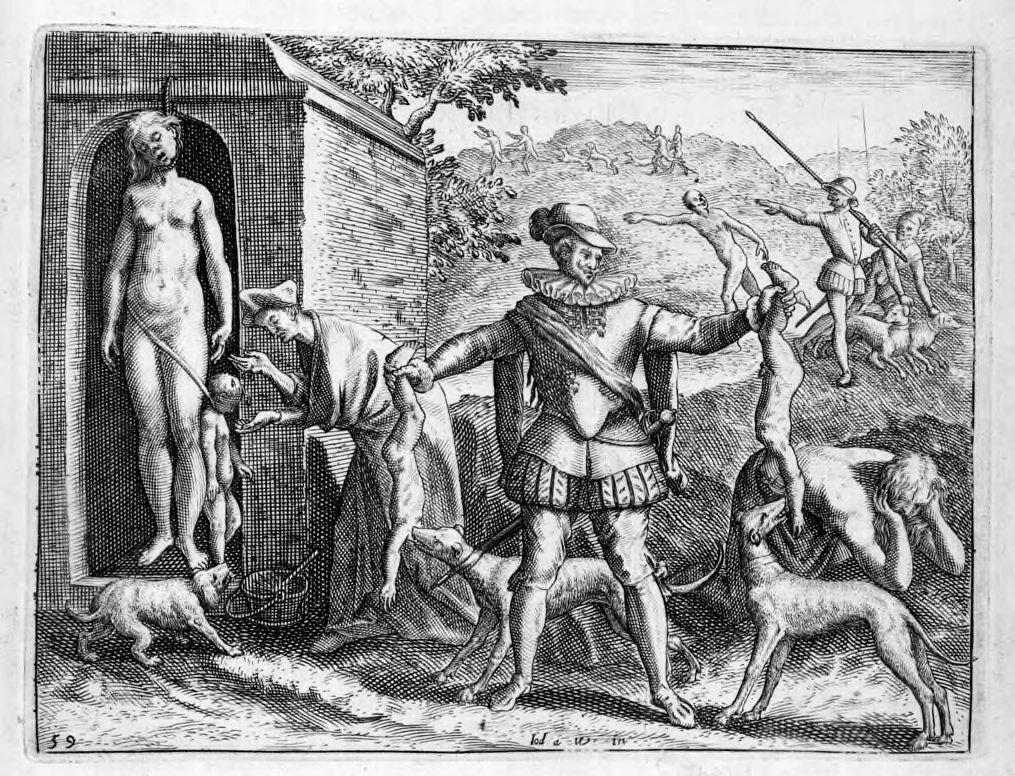In the dimly lit corridors of history, a shadowy phenomenon known as the Black Legend emerges, casting a long, pervasive cloud over the legacies of various cultures. Shrouded in rhetorical manipulation and half-truths, the Black Legend has become a powerful tool employed by ambitious individuals seeking to tarnish the reputation of others, seize power, or fuel their own agendas. As we unravel the origins of this phenomenon, we gain insight into its subversive influence and its impact on global perceptions.
Setting the Scene
Imagine a bustling European court in the 16th century. Rumors are spreading like wildfire, whispers of a new world across the vast Atlantic Ocean. As Spanish conquistadors return from their explorations, tales of newfound wealth, foreign cultures, and untold riches reach the ears of eager listeners. However, amidst these stories, a darker narrative slowly emerges, casting a shadow over the wondrous tales of exploration and discovery.
The Black Legend and its Historical Context
To truly grasp the essence of the Black Legend, we must first understand its historical context. The Black Legend found fertile ground during the rivalry between European powers seeking to expand their colonial empires during the Age of Exploration. Primarily attributed to Spain, it depicted the Spanish conquest of the Americas as a brutal and exploitative endeavor, marking the indigenous populations as victims and branding the Spanish as merciless oppressors.
The Role of Religious Bias
Religious biases also played a significant role in the perpetuation of the Black Legend. Spain’s status as a bastion of Catholicism put it at odds with their Protestant rivals, who sought to discredit the newly emerging Spanish empire. Accusations of religious intolerance, fanaticism, and the suppression of indigenous cultures conveniently fueled this negative narrative.
Historical Revisionism and its Impact
Over time, historical revisionism has played a crucial role in perpetuating the Black Legend. As cultures clashed during European colonial expansion, the interpretation and manipulation of historical events allowed for the crafting of a narrative that suited the ambitions and prejudices of those in power. From Bartolomé de las Casas‘ accounts of atrocities to accusations of Aztec human sacrifices, nuances were conveniently overlooked or distorted to fit the Black Legend narrative.
The Wider Impact of the Black Legend
The Black Legend’s impact extended beyond the struggle for power between European empires. In an era without instantaneous communication, stories of Spanish cruelty reached far corners of the globe. These vivid tales contributed to the lingering perceptions of Spanish colonization and cast a long-lasting cloud over Spain’s reputation, even as its empire faded.
Exposing the Black Legend
Examining the origins and intricacies of the Black Legend allows us to understand how negative narratives have been used throughout history to manipulate perceptions, sway public opinion, and seize power. It is crucial for us to critically evaluate the narratives we encounter and strive for a more nuanced understanding of historical events. By exposing the it for what it truly is, we can unearth the untold stories, illuminate the grey areas, and pave the way for a more accurate interpretation of history.
